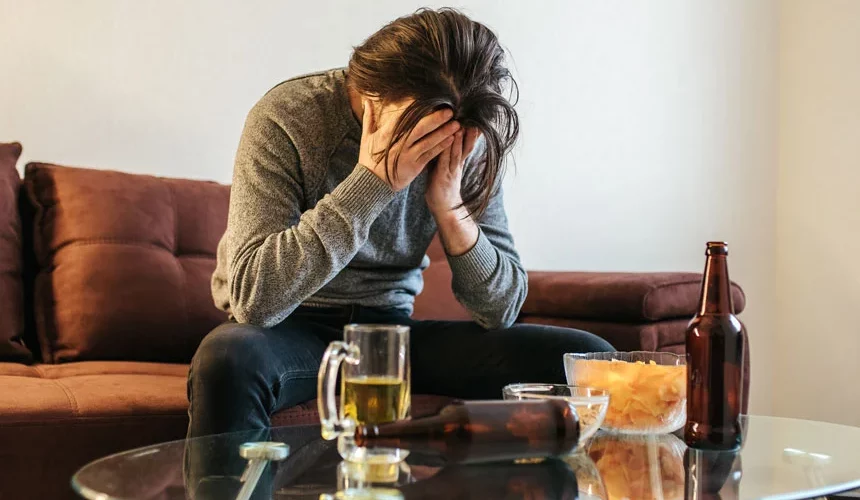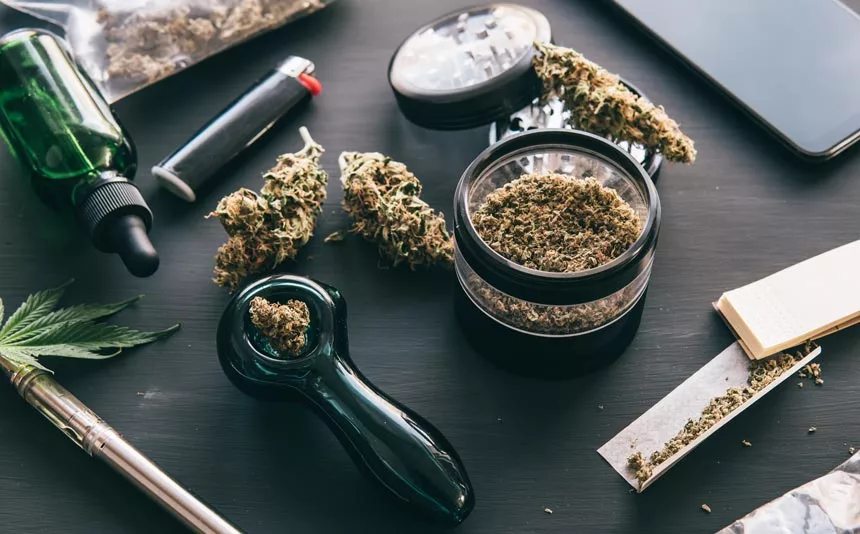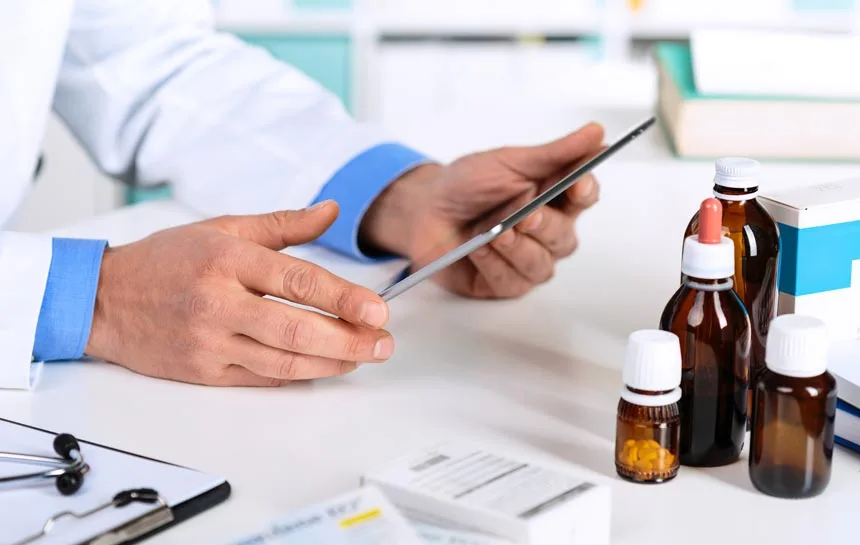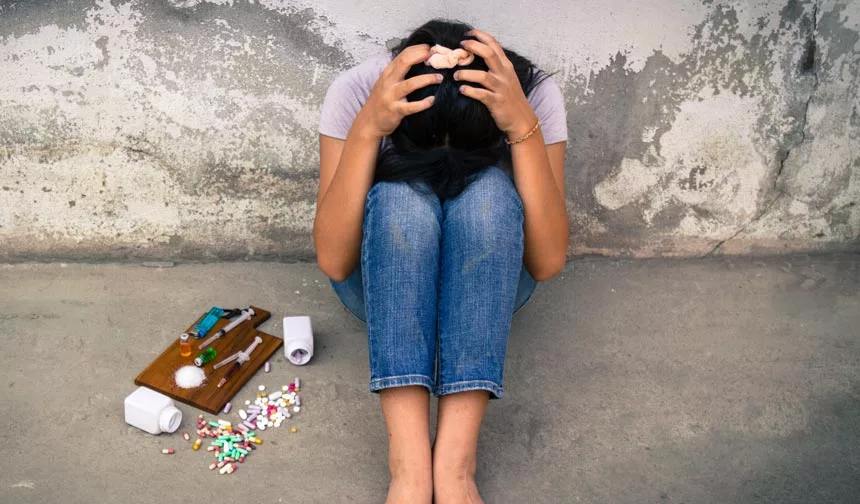Delaware Rehab Centers: Complete Guide To Delaware Addiction Treatment Centers
Table of Contents
- Delaware Rehab Centers: Complete Guide To Delaware Addiction Treatment Centers
- Addiction in Delaware by the Numbers
- Opioids and the Call for Drug Rehabs in Delaware
- The State of Substance Abuse in Delaware
- What are the Drug Laws in Delaware?
- Delaware Addiction Treatment Options
- Choosing an Effective Delaware Rehab
- Dual Diagnosis Treatment Centers in Delaware
- Inpatient Drug and Alcohol Rehab Centers in Delaware
- The Army National Guard Substance Abuse Program in Delaware
- How Much Does Rehab Cost in Delaware?
- Using Private Insurance to Pay for Rehabs in Delaware
- Local Delaware Addiction Recovery Resources
- Delaware Treatment Center Accreditation
- Find a Top Delaware Alcohol and Drug Rehab Center Now
Nearly 150,000 Delawareans, or 15.6 percent of the state’s population, use illegal narcotics in a given year, while 49,000 Delawareans, or 5.7 percent of the state’s population, abuse alcohol. As a result, between 2008 and 2017, drugs and alcohol were responsible for more than 16% of all deaths in Delaware, four percentage points higher than the national average. Though these statistics are somewhat dated, they point to the clear need for effective Delaware alcohol and drug rehab centers.
During that period, Sussex County had the most significant percentage of drug- and alcohol-related deaths among Delaware’s three counties, at 18.28 percent, while New Castle County had the lowest rate, at 15.2 percent.
Addiction is a chronic medical condition that can be treated and recovered from. Several high-quality rehabs in Delaware offer therapy to anyone suffering from substance misuse, whether you are looking for treatment for yourself or a loved one.
Many treatment facilities provide a variety of programs and care levels for clients. If you or someone you care about is struggling with addiction, this guide explores what you need to know about Delaware alcohol and drug recovery options.
Addiction in Delaware by the Numbers
The number of drug-related overdose deaths in Delaware climbed from 172 in 2012 to 228 in 2015. Cocaine-related mortality increased by 44.8 percent from 2014 to 2015, following a drop between 2012 and 2014. Following a 17.5 percent decline between 2012 and 2013, heroin-related mortality increased by more than 90 percent between 2013 and 2014.
Nearly 7,000 people aged 12 and above with illicit substance dependency or abuse received treatment in the year preceding the study (29 percent). Delaware had a higher yearly average of drug dependency or addiction treatment for people aged 12 and older than the national average from 2010 to 2014. (14.1 percent).
The Need for Alcohol Rehabs: Delaware

Alcohol was the predominant substance of abuse in 10% of admissions to publicly funded addiction treatment. According to the 2017 Delaware Epidemiological Profile, Delaware has slightly higher alcohol consumption than the national average, despite a drop in past-month drinking among adults from 60% in 2011 to 53% in 2015. Although Delaware’s alcohol consumption is greater than the national average, it is among the lowest among Maryland, New Jersey, and Pennsylvania, Delaware’s northern neighbors.
Opioids and the Call for Drug Rehabs in Delaware
Like many other northeastern states, Delaware is currently in the grip of the country’s opioid epidemic. The National Institute on Drug Abuse (NIDA) reports that Delaware’s opioid overdose death rate has surpassed the national average since 2009 and continues to do so.
Furthermore, NIDA records show a significant surge in synthetic opioids in Delaware. The opioid pandemic has cleared the door for the usage of fentanyl and carfentanil, which are potent opiates that are commonly mixed with heroin powder and are mostly to blame for the increase in overdose deaths.
According to the Drug Enforcement Administration (DEA), heroin and prescription opioid painkillers pose the most significant health risk to Delaware residents due to the availability of low-cost, high-purity heroin and an increasing number of prescription opioid abusers who turn to heroin as a cheaper alternative.
According to the DEA, the principal distributors of methamphetamine in Delaware are Mexican drug trafficking organizations (DTOs) and motorcycle gangs; nonetheless, treatment admittance rates for meth are substantially lower than admission rates for opiates and heroin.
The State of Substance Abuse in Delaware

Delaware has a higher-than-average rate of illegal drug addiction. Various variables have contributed to Delaware’s alarmingly high addiction and abuse rates. The location is a few hours away from major cities with serious drug problems, such as Philadelphia and New York City.
Almost 9% of Delaware citizens reported taking illegal substances in the previous month. The national average was a little higher than 8%. The following are the most often misused substances in Delaware:
Delaware Drug Trafficking Organizations
Drug trafficking organizations have begun to relocate to Delaware to hide their operations from significant city law enforcement. Furthermore, Wilmington’s closeness to I-95, the busiest roadway on the East Coast, makes it a considerable exchange and distribution point for drugs.
Summertime opioid availability in Rehoboth Beach is another major issue for Delaware residents.
According to police investigations, Rehoboth Beach is a significant distribution location for methamphetamine and club drugs such as MDMA (ecstasy) and GHB. Teenagers and college students hunt for these substances before going to local nightclubs and gatherings during the summer break. When these drugs are used with alcohol, it can easily lead to a lethal overdose.
What are the Drug Laws in Delaware?

Several Delaware drug laws include exceptions and subjective features that can dramatically alter a person’s sentence. As a result, it may be impossible to predict the precise consequences of separate drug offenses.
Possession of a Substance from Schedule I or II (CDS)
Controlled Dangerous Substances (CDS) is used in Delaware to identify, regulate, and monitor prescription medications and substances. Personal possession of any CDS is usually regarded as a misdemeanor.
If there are aggravating factors in the CDS violation, the judge may impose a harsher punishment. If and only if the following conditions are met, an element is aggravating:
- The crime occurred near a school, park, house of worship, or other secure spots.
- The offense took place in a vehicle.
- The offense was perpetrated by a youngster at least four years younger than the perpetrator. The suspect resorted to violence to evade arrest.
- While under arrest, the defendant attempted to flee in their vehicle.
Marijuana Possession
Marijuana possession charges may overlap with CDS punishments. For example, possessing one ounce to one hundred seventy-five grams of marijuana is a misdemeanor. The court will determine the maximum fine for having more than 175 grams of marijuana.
Prescription Drug Monitoring Program in Delaware

Prescription Drug Monitoring Programs (PDMPs) keep track of the controlled medications that doctors and pharmacists prescribe and administer. PDMPs detect “doctor shoppers” and offer early alerts about rising drug trends (people who visit multiple doctors to get more drugs).
The PDMP in Delaware requires that all prescription medicines be reported to an electronic database. This database aids in the prevention of the distribution of prescribed pharmaceuticals, potentially lowering the prevalence of addiction.
Delaware Per Se Regulations Regarding Driving Intoxications
Drivers having a blood alcohol content (BAC) of 0.08 percent or more are not permitted to operate a motor vehicle in any state. On the other hand, driving under the influence laws are difficult to police and differ from state to state. The Per Se standards are intended to remove the ambiguity involved with drunk driving prosecutions.
Delaware is one of seventeen states with Per Se laws and a zero-tolerance DUI policy. There is no minimum amount of a drug or substance that must be present in the bloodstream to establish a DUI prosecution, according to state law. In other words, you could be arrested if you use drugs before driving.
Delaware Addiction Treatment Options
Delaware has a wide range of one-of-a-kind, state-funded treatment alternatives for people suffering from practically any sort of addiction. Each type of therapy seeks to identify the underlying reason for the addict’s addiction to treat the whole person.
There are many alcohol and drug addiction treatment options in Delaware. Medical detox, alternative rehab, aftercare services, inpatient drug and alcohol rehab, and outpatient treatment are all available.

Choosing an Effective Delaware Rehab
When considering the various options for substance abuse treatment, it is easy to become overwhelmed. Nonetheless, selecting a treatment program that suits your recovery needs is critical to your success. Consider the following when assessing potential treatment programs:
- Which sort of addiction therapy will benefit you the most? More severe addictions, in many circumstances, necessitate inpatient treatment followed by outpatient therapy.
- Do you have any mental illnesses? Mental health issues may make addressing substance misuse more challenging, demanding more complex treatment options.
- What exactly is a sober lifestyle? What kind of post-treatment services does the rehabilitation center you’re thinking about offering its clients?
Consider these factors when looking for an alcohol and drug recovery program that will work for you or a loved one.
It is critical to note that not all addiction treatment programs are the same. When considering several alternatives, keep the following aspects in mind:
- The state of Delaware certifies substance addiction treatment centers that satisfy strict standards. Wherever possible, use a licensed rehabilitation program.
- Not all people in addiction therapy will require the same treatment options. As a result, it is best to look for a facility that offers various services across the continuum of care.
- Professional substance abuse counselors will be used in the most effective substance abuse treatment programs.
- Individualized treatment: Because each patient has unique needs, it is critical to locate a treatment center that will work with you to develop a personalized treatment plan based on your specific requirements.
- Data-based treatment services are addiction treatment procedures backed up by scientific evidence.
Dual Diagnosis Treatment Centers in Delaware

According to research, the primary cause of drug and alcohol addiction is mental health difficulties. As a result, it is critical to seek treatment for both the addiction and the mental condition. Furthermore, it has been demonstrated that if only one component of the addiction is treated, the habit cannot be removed.
Fortunately, Delaware is a great place to treat both sides of addiction. Delaware treatment facilities are committed to restoring the patient’s life in addition to addressing the patient’s underlying mental health difficulties and addiction illnesses. They treat depression, obsessive-compulsive disorder, anxiety, schizophrenia, and post-traumatic stress disorder (PTSD).
Dual diagnosis treatment centers provide addiction treatment for alcohol, heroin, methamphetamine, and opioids. It is also unusual for these treatment facilities to start the recovery process with detoxification to cleanse the patient’s system of the substance.
Inpatient Drug and Alcohol Rehab Centers in Delaware
Inpatient Rehab entails admitting the patient to the hospital as if they were a regular client with health issues. They receive 24-hour care from experts in the field of drug and alcohol addiction. This strategy is far superior since it eliminates the different methods for the client to access the addictive chemical and relapse into substance abuse. It also provides a secure area for people in similar situations to talk about their experiences and engage in community living.
Inpatient and residential addiction treatment centers not only provide substance use disorder counseling but also provide a home away from home for patients. These programs typically run 30, 60, or 90 days, while certain facilities may provide care for more extended periods. Clients will stay in shared or private rooms at the Delaware drug rehab clinic throughout their therapy.
Clients will follow a treatment plan and participate in various programming during therapy. Different treatment approaches may include behavioral therapy, support groups, holistic activities, addiction education, family counseling, and other interventions.
Alternative Rehab in Delaware
This service is analogous to outpatient care. In this case, the person undergoing therapy does not stay at the rehabilitation center for 24 hours. They merely attend sessions before leaving. This strategy is appropriate for people who are emotionally attached to their families or unable to leave their jobs anytime.
Outpatient Services for Addiction in Delaware

In Delaware, there are several options for standard outpatient, partial hospitalization, and intensive outpatient care. These programs may benefit folks with less serious substance misuse problems or as a transitional therapy for those who have recently completed a higher level of care.
Clients in most outpatient addiction treatment programs will follow a tailored treatment plan that will last several weeks. Individual and group treatment may last several hours per day or only a few hours per week.
Medical Detoxification Facilities in Delaware
Some treatment institutes provide detoxification in addition to counseling. On the other hand, medical detoxification is often the first step in the healing process at most rehabilitation facilities. Detoxification is required to remove all of these drugs’ poisons deposited in the human body. It also aids in the overall rehabilitation from addiction.
Medically Assisted Treatment
MAT programs are provided in inpatient and outpatient settings depending on the patient’s preferences and needs. Most of these programs mix the medicine with other types of therapy, such as cognitive-behavioral therapy. Several prescription drugs have been demonstrated in studies to aid recovery by decreasing opiate or alcohol cravings.
Addiction Aftercare Assistance in DE
Aftercare assistance aims to give patients the tools they need to stay sober. Sober living facilities, peer recovery support, support group meetings, and other community programs are examples of aftercare support. All clients should receive aftercare support after finishing an addiction treatment program.
The Army National Guard Substance Abuse Program in Delaware

Service members have witnessed horrible combat incidents upon their return from deployment. As a result, many people have developed a dependence on drugs and alcohol to cope with stress and misery. The Delaware Army National Guard Substance Abuse Program understands that soldiers struggling with addiction require special care.
The ARNG Substance Abuse Program urges addicted individuals to notify their unit commanders.
A Limited Use Policy safeguards troops who self-identify as addicted by restricting the adverse actions that can be taken against them for disclosing their addiction.
Following that, the project will provide soldiers with the following referral services:
- Substance abuse education centers
- Treatment facility locations in the community
- Centers for post-recovery counseling
Although the ARNG will help with recommendations, it is the soldier’s responsibility to attend counseling and seek treatment.
Addiction Treatment in Delaware Prisons
The Delaware Department of Corrections intervened because more than 80% of the state’s jail population suffers from addiction illnesses. There are two active programs within the state’s jail system to help offenders get sober and healthy before reintegrating into society.
Recovery for Inmates: The Key Program in Delaware
KEY is a rehabilitation program for inmates in their final 12 to 18 months of incarceration. The program’s goal is to address the root causes of inmates’ addictions and assist them in identifying thought and behavior patterns that may have led to their addictions.
CREST’s Substance Abuse Treatment Program
CREST is a substance addiction treatment program for house arrest inmates. The program emphasizes performance-based treatment, and participants must complete the following three stages:
- A 12-step program, instructional seminars, and stress management therapy are all part of the first phase of treatment.
- Primary rehabilitation, communication and problem-solving skill development, anger control, and life skill development are part of Phase 2.
- Creating a personal recovery plan, developing a sober support network, and keeping a recovery journal are all part of Phase 3.
How Much Does Rehab Cost in Delaware?

Drug and alcohol treatment services are the most effective way to overcome any substance abuse problem, yet, therapy can be costly. Some drug addicts are concerned about their ability to pay for treatment, which may deter them from enrolling.
Drug and alcohol treatment treatments are covered by health insurance, including Medicaid, allowing Delaware people to conquer their addictions.
Using Medicaid to Pay for Rehab Treatment in Delaware
Delaware’s Medicaid expansion has contributed to the state’s low uninsured population. Medicaid recipients can access low-cost health care, including drug and alcohol rehabilitation. This can assist clients in financing a drug rehabilitation program that would help them overcome their substance abuse problem before it is too late.
Because Medicaid is only accepted at 16 drug treatment centers in Delaware, it is critical to start looking for a facility as soon as possible, as a waitlist can prohibit clients from receiving urgent treatment.
Using Private Insurance to Pay for Rehabs in Delaware
Using private health insurance to pay for drug treatment services could significantly lower treatment costs. These insurance companies will collaborate closely with some of the most effective drug treatment programs to ensure that the addiction is overcome.
Private health insurance may only cover a percentage of the overall cost, depending on the policy; therefore, you should contact your provider to understand your coverage, the programs that accept it, and any anticipated out-of-pocket expenditures.
Paying for Rehab Without Insurance
The client may suffer significant out-of-pocket payments when paying for drug and alcohol treatment programs without health insurance. People who do not have the financial resources to pay for treatment do not obtain the necessary help to overcome their addiction. Through drug recovery programs, uninsured individuals have access to several financial solutions. A sliding scale is one way to assist patients with drug therapy by creating appropriate pricing based on the patient’s income. When attempting to overcome drug addiction, it is critical to seek treatment, and Delaware alcohol and drug rehab centers may assist you in locating the most appropriate facility.
Local Delaware Addiction Recovery Resources
- Alcoholics Anonymous (AA) is a treatment program for those who want to stop drinking. The Delaware AA website includes a directory with links to meetings throughout the state.
- Narcotics Anonymous (NA) is a support group for those who want to stop using drugs. The Narcotics Anonymous World Services (NAWS) website now shows around 100 weekly NA meetings across the state.
- Celebrate Rehabilitation is a Christian rehabilitation organization with chapters throughout the Northeast. They currently host four weekly meetings in Delaware and countless others in neighboring states.
- Rehabilitation Dharma is a Buddhist-centered recovery organization with gatherings all across the country. There are presently no in-person meetings in Delaware, but there are dozens of online discussions that anybody can attend daily.
- Help is Here, DE: The Delaware Division of Public Health funds this program, providing various alternatives. These include mental health, substance abuse, treatment, and prevention resources in Delaware.
- The United Way of Delaware provides the 211 Delaware community initiative. Their website contains a statewide directory of social, treatment, and community options for those in need.
- Delaware.gov: This website provides a Recovery Resources page that lists several resources in Delaware. These contain resources for people dealing with mental health and substance misuse problems.
- DELcovery: This community support organization works to connect Delaware residents in recovery from substance abuse with resources. They offer various services and assistance, such as job placement, food pantries, and healthcare.
Delaware Treatment Center Accreditation
There are three central certifying authorities for addiction treatment facilities. The first is the SUPPORT Act (Substance Use Disorder Prevention that Promotes Opioid Recovery and Treatment for Patients and Communities).
- SUPPORT, which stands for “The Substance Use Disorder Prevention that Promotes Opioid Recovery and Treatment of 2018 for Patients and Communities Act,” certifies that patients’ treatment and care follow nationally accepted standards for high-quality, standardized behavioral health care.
- The Commission on Rehabilitation Facility Accreditation (CARF). CARF can help you find and evaluate addiction treatment clinics in the United States and Canada.
- The Joint Commission Accreditation for Addiction Treatment Providers (Joint Commission) is the largest certifying agency for medical facilities and hospitals and the second largest drug misuse program.
Choosing the Right Addiction Rehab For Your Needs
In Delaware, there are few detoxification and inpatient treatment facilities. This is not to say that addicts should accept any facility. To ensure that you receive the best possible care, you should always contact Find Addiction Rehabs ahead of time to ensure that your treatment program fits some vital criteria, such as:
- CAR, Joint Commission, or another type of certification
- A Delaware license is required
- Counselors and therapists with master’s degrees
- Financing options that are beneficial to clients and their families
Find a Top Delaware Alcohol and Drug Rehab Center Now
Overcoming a substance abuse problem is a continuous battle for some Delaware residents. Delaware treatment clinics aid individuals in achieving inner peace by assisting state residents in beating their addiction and beginning the healing process.
Since Delaware’s treatment programs target a wide range of addictions, it is critical to investigate all treatment choices. Occasionally, the right center may be located outside of town or even across the country.
Travel is an excellent option for recovering addicts who want to physically remove themselves from situations that may have led to their addiction. On the road to a life of health and enjoyment, individuals can start with a “clean slate,” developing positive thinking practices and relationships along the way.
Addiction therapy might mean the difference between life and death. Find Addiction Rehabs is entirely dedicated to assisting people in becoming sober. Call our dedicated recovery representatives for confidential help, with same-day placement possible!


